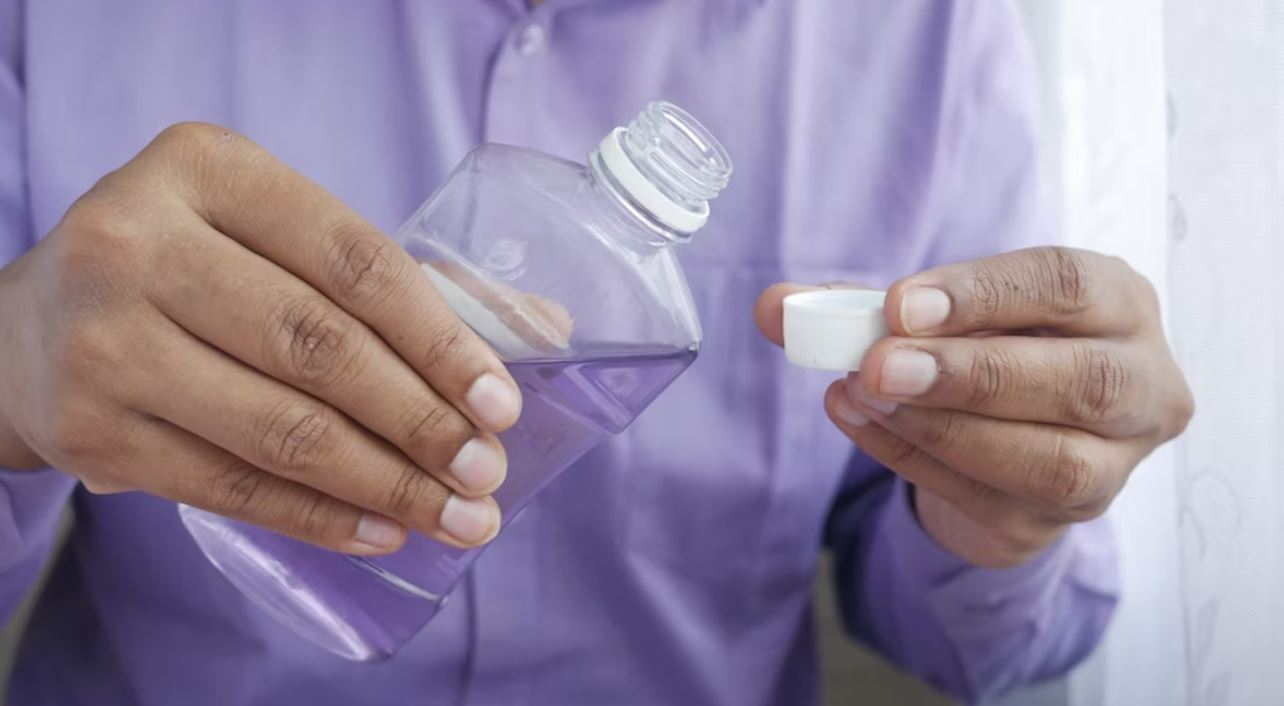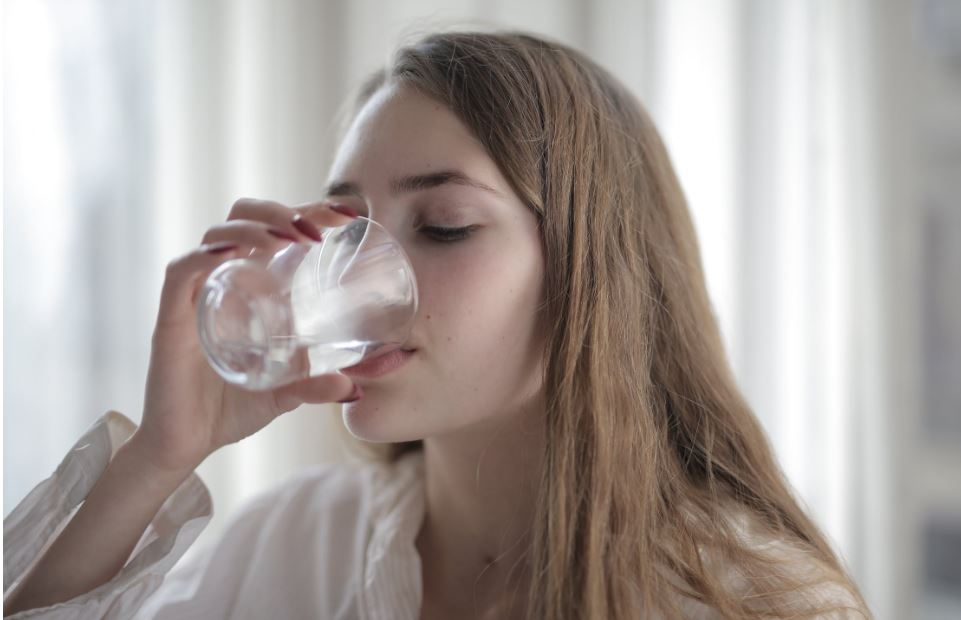How Often Should I Use Mouthwash?
Dentists recommend that you use mouthwash 1-2 times a day to ensure proper oral hygiene.
Although famous for giving us fresh breath, most people do not know how much mouthwash is needed to keep bad breath away and oral health in good condition.
Adding the proper use of alkaline mouthwash to your oral hygiene routine helps keep the mouth clean by going to hard to reach places that your toothbrush can't reach.
This article will explain everything you need to know about mouthwash and how often to use it.
What is mouthwash?
Mouthwash is a liquid dental product that helps clean and freshen your mouth.
It may contain active ingredients like antibacterial agents (for example, neem oil and licorice extract) or fluoride to improve dental health by:
- reducing plaque buildup
- reducing the risk of gingivitis
- dislodging food and odor-causing bacteria from hard-to-reach places
- and fighting tooth decay.
While mouth rinse helps reach areas that brushing and flossing miss, it isn't a substitute for brushing with nano hydroxyapatite toothpaste and flossing with expandable floss.
Think of it more like a helpful addition to your oral hygiene routine than a replacement.
Purpose of Mouthwash
Mouthwash is intended to be the final step in your oral care routine after brushing your teeth and flossing.
Mouthwashes are not a replacement for brushing and flossing but rather a supplement to them.
In fact, mouthwash will be able to get in between your teeth better than your toothbrush and floss to help get rid of plaque in hard-to-reach places.
Further, you can use mouthwash to freshen your breath conveniently throughout the day without the inconvenience of having to brush.
Mouthwash Benefits

Although well-known in the world of dental products, mouthwash is underrated when it comes to the advantages it brings.
Read along and see for yourself just how beneficial mouthwash can be.
Reduces Bacteria that Cause Inflammation and Gum Disease
Mouthwash can kill harmful bacteria that contribute to gum disease.
Just a few seconds of swirling mouthwash can treat symptoms and combat gum disease such as canker sores and inflamed gums.
Throughout this process, mouthwash prevents soft tissues like your gums from becoming more inflamed.
Keeps Bad Breath Away
Halitosis, commonly known as bad breath, is an oral health concern among many people.
Using mouthwash prevents bad breath by washing away odor-causing bacteria inside the mouth.
Plus, it's handy to keep in your bag whenever you need to freshen up.
Helps With Brushing and Flossing
Brushing and flossing alone do not ensure you have the best chances of preventing cavity development.
Because of its liquid consistency, mouthwash reaches all the small spaces of your mouth.
This greatly helps to prevent plaque from forming, which in turn, prevents tooth decay.
Improve Oral Health
With the help of regular brushing and flossing plus dentist cleanings, using oral rinses can help keep your whole mouth clean.
When the harmful bacteria cannot organize into plaque, you minimize your chances of oral infections and ulcers like canker sores.
Prevents Dry Mouth
Most cheap mouthwashes have alcohol in them which can dry out your mouth.
Now, you might be thinking that alcohol-based mouthwashes are more effective in killing bacteria.
However, researchers have found that alcohol-based and alcohol-free mouthwashes have the same effectiveness when removing bacteria.
Therefore, using a mouthwash without alcohol can actually help support your oral microbiome and salivation instead of drying out your mouth.
How Many Times Should I Use Mouthwash?

Dentists advise that mouthwash is most effective when used one to two times a day.
You should only use mouthwash after you're done using fluoride-free toothpaste and floss.
This is because mouthwash is used to clean the areas of the mouth which toothpaste and floss cannot reach, such as tight spaces along the gumline.
You should avoid using too much mouthwash since this may irritate your mouth, especially if the brand you are using has alcohol.
It's best to stick with the recommended usage of 1-2 times per day and get a dental appointment if any issues persist.
How to Use Mouthwash Properly
To use an oral rinse in your oral care routine after brushing your teeth, follow these steps:
-
Pick up some SWISH Mouthwash.
-
Measure out about 20mL of product.
-
Swish and gargle for about 30 seconds.
-
Spit it out.
-
Avoid eating or drinking immediately afterward.
-
Rinse with water (optional).
-
Maintain consistency.
Using mouthwash is a straightforward process, but it's important to follow the proper steps to maximize its effectiveness and ensure your dental hygiene benefits.
Should I Use Mouthwash Every Day?

Yes, you can use mouthwash twice a day each time you clean your teeth.
Mouthwash works synergistically with your standard flossing and brushing practices to deeply clean your entire mouth.
It may also be just the thing you're looking for if you already have clean teeth but also want perfectly minty, fresh breath.
Further, mouthwash can be a practical alternative for those who practice oil pulling.
While oil pulling adds a hefty 20-30 minutes to your daily routine, rinsing with mouthwash can be done in just under a minute.
Do I use mouthwash before or after brushing?
In deciding when and how often to use mouthwash, the choice largely depends on your personal preferences and the desired outcome.
Let's explore the benefits of both options to help you make an informed decision.
Using Mouthwash Before Brushing
Using mouthwash before brushing is a common practice for many individuals and has advantages like:
-
Freshening breath
-
Loosening debris
-
Enhanced cleaning
However, we recommend using mouthwash after brushing for the best results.
Using Mouthwash After Brushing
Using mouthwash after brushing is also a valid choice, and it offers its own set of benefits:
-
Extended freshness
-
Continued antibacterial action
-
Reaching any spots missed by flossing and brushing
This is the method most dentists recommend.
Does Using Mouthwash Replace Brushing and Flossing?
No, mouthwash does not and cannot replace brushing and flossing.
Mouthwash should only be used in conjunction with the two to provide the best cleaning possible.
Using mouth rinse only without brushing and flossing will cause more harm than good to your mouth.
Brushing removes strains and breaks down plaque while flossing removes food particles stuck in between the teeth.
These functions cannot simply be replaced with the swishing around of mouthwash and will keep your teeth dirty.
So, keep in mind that mouthwash is not better than flossing and brushing!
Summary: How Often Should You Use Mouthwash?
Dentists recommend using mouthwash one to two times a day.
This is because mouthwash does more than just keep your breath fresh.
In fact, mouthwash provides a deep cleaning boost on top of brushing and flossing while protecting you from gum disease.
When used in conjunction with nano-hydroxyapatite toothpaste, it can support your oral health by killing bacteria and fighting plaque formation.
If you have yet to try using mouthwash in your daily routine, check it out and give your gums the care they deserve!
Frequently Asked Questions
What is the recommended frequency for using mouthwash?
Dentists recommend using mouthwash 1-2 times a day to maintain proper oral hygiene. However, it's important to follow the specific instructions on the product as some mouthwashes may be designed for different usage frequencies.
Is incorporating mouthwash into your daily oral care routine beneficial?
Incorporating daily mouthwash use is essential to promote optimal oral health alongside regular brushing and flossing. Mouthwash serves as a valuable addition to your dental regimen, helping to prevent and minimize harmful oral bacteria, while also ensuring a consistently fresh and pleasant breath.
How does mouthwash complement my oral care routine?
Mouthwash serves as the final step in your oral care routine, following brushing with nano hydroxyapatite toothpaste and flossing with expandable floss. Mouthwash complements your oral care routine by helping to kill odor-causing bacteria in areas of the mouth that may be difficult to reach with brushing and flossing alone. Overall, can be a useful addition to regular oral hygiene practices.
Can mouthwash replace brushing and flossing?
No, mouthwash cannot replace brushing and flossing. It should be used in conjunction with brushing and flossing for comprehensive oral care. While mouthwash can provide additional benefits, it does not remove plaque and debris as effectively as brushing and flossing do. These mechanical actions are crucial for maintaining optimal oral health.
What is the purpose of mouthwash?
The purpose of mouthwash is to reduce plaque, fight bacteria that cause bad breath, and promote overall oral hygiene. Different mouthwashes may have specific ingredients targeting various oral health issues, such as gingivitis, sensitive teeth, or plaque control.
What are the benefits of using mouthwash?
The benefits of using mouthwash include reducing bacteria in the mouth, preventing gum disease, promoting fresher breath, and providing an additional layer of protection against cavities. Some mouthwashes may also contain fluoride or hydroxyapatite, which may help strengthen tooth enamel.
























